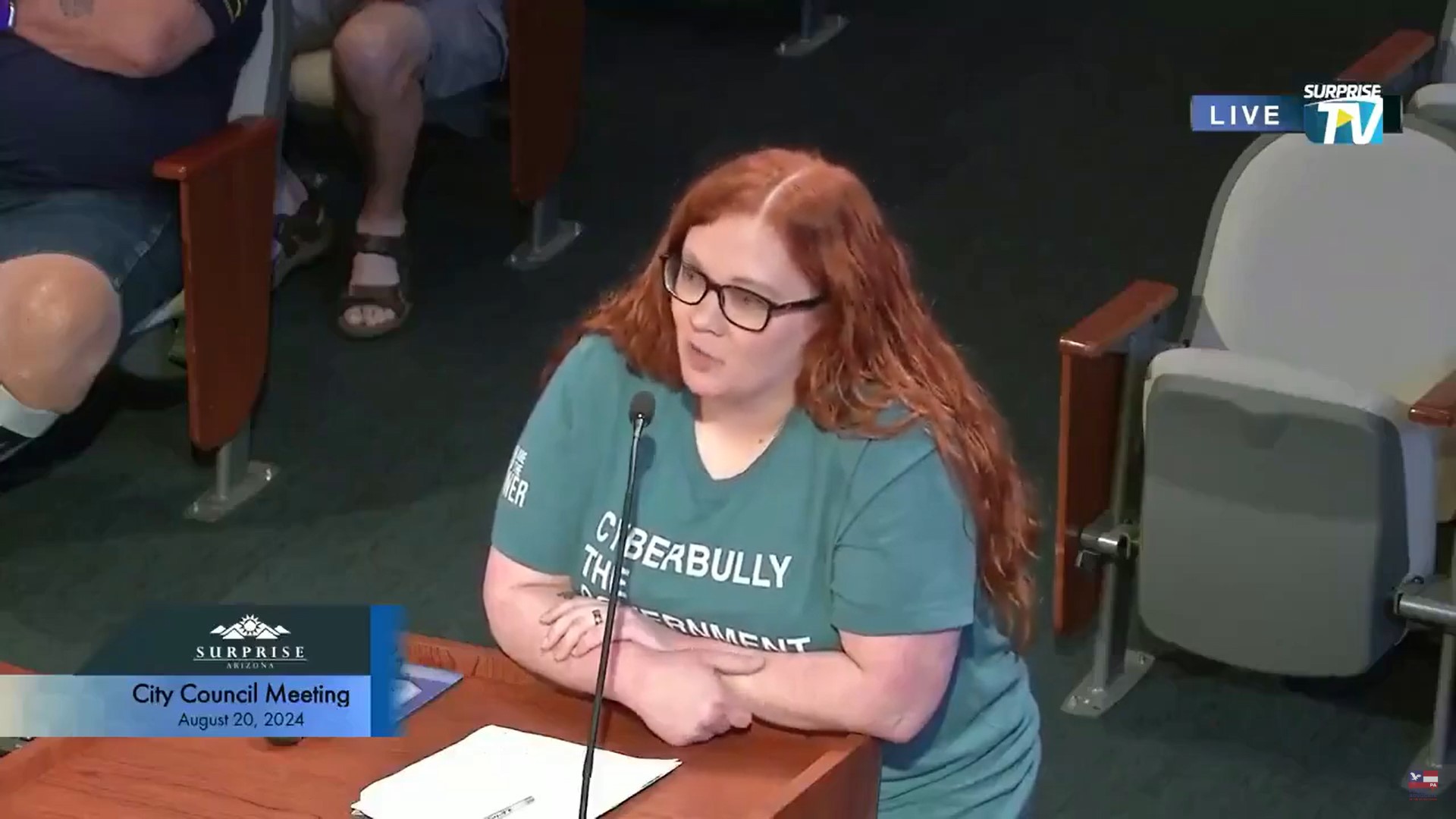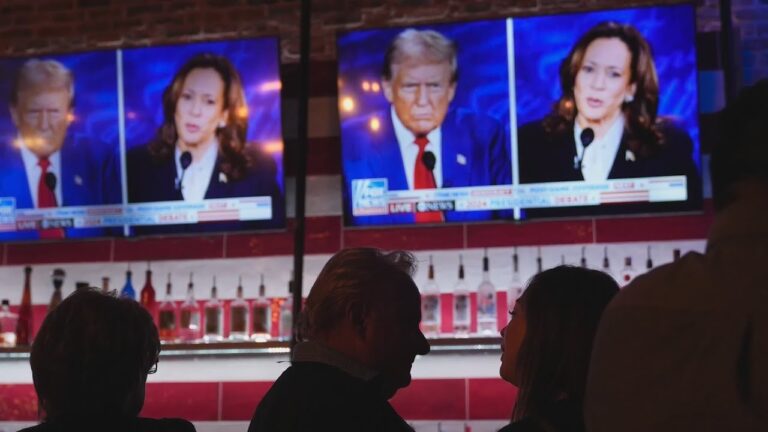In a glaring display of governmental overreach, an Arizona woman, Rebekah Massie, found herself in handcuffs after daring to criticize city officials during a council meeting. Her arrest, which unfolded in front of her 10-year-old daughter, has sparked outrage and raised alarming questions about free speech in America.
Massie was at the city council podium to voice her vehement opposition to the renewal of a city attorney’s contract, which included a controversial salary increase. Her fiery critique accused the official of violating the U.S. Bill of Rights, the Arizona constitution, and the state bar’s professional conduct rules. But before she could delve deeper, Surprise Mayor Skip Hall abruptly silenced her, citing council rules that prohibit lodging charges against city employees during public meetings.
“This is the public meeting forum you agree to when you speak,” Hall declared, a statement Massie quickly countered as an infringement on her First Amendment rights. Yet, the mayor, unfazed, threatened her with removal unless she stopped speaking.
The tension escalated, as Hall ordered a police officer to escort Massie out for trespassing, a move that was as chilling as it was authoritarian. The incident, witnessed by her daughter, concluded with Massie receiving a criminal trespassing citation.
This troubling episode underscores a disturbing trend where public officials deploy procedural rules to quash dissent, effectively stifling citizens’ rights to hold their government accountable. Free speech is the lifeblood of our democratic process, essential for ensuring that government actions reflect the will of the people. When citizens are silenced or penalized for speaking out, it chips away at the very foundations of our constitutional republic.
The Massie incident is a stark reminder that free speech is not just under digital attack through Big Tech censorship, but also threatened by government policies that criminalize public dissent. It raises critical concerns about the balance of power and the role of elected officials in facilitating open discourse.
Public forums must remain bastions of free expression, where citizens can freely challenge and question those in power without fear of retribution. The right to speak freely and criticize government actions without facing arrest is not only a constitutional guarantee but a vital part of our national identity.
Rebekah Massie’s arrest serves as a sobering example of the fragile state of free speech today. Upholding these rights is a collective responsibility, transcending political affiliations, to ensure that every voice is heard, and every citizen can engage with their government fearlessly. As this incident resonates across the nation, it calls for a renewed commitment to protect and preserve the freedoms that define us.





Leave a Comment